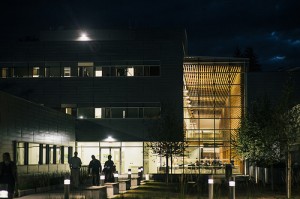 Senior Administrators felt that it was necessary to consult with Aboriginal advisors to get started. It was considered important to have Learning Place for First Nations, which most institutions have, and First Nations programming included in the strategic plan. Programs needed to be created that acknowledge multiple nations. Administrators noted that many departments within the institution had a sense of confusion about what their role in the process was, and needed a broader sense of what indigenizing means. In some spaces there is deep rooted cynicism around change. The question was asked, “How do you work with organizations or systems that are not working towards indigenization?
Senior Administrators felt that it was necessary to consult with Aboriginal advisors to get started. It was considered important to have Learning Place for First Nations, which most institutions have, and First Nations programming included in the strategic plan. Programs needed to be created that acknowledge multiple nations. Administrators noted that many departments within the institution had a sense of confusion about what their role in the process was, and needed a broader sense of what indigenizing means. In some spaces there is deep rooted cynicism around change. The question was asked, “How do you work with organizations or systems that are not working towards indigenization?
Senior Administrators also mentioned that although they were doing very good work at their institution, there was a lack of coordination. They also needed to work on recruiting, and on creating a friendly and culturally accessible space. Limited financial resources and support for Aboriginal studies and aboriginal services are obstacles, however. Formalized structures, strategic plans, and public policy were all needed to achieve goals around hiring, retention and tenure, and give direction to middle management, which struggles if these elements are not in place. To create a framework with broad consultation that spans both the academic and administrative areas was considered very complicated. Indigenization can be overwhelming, they felt, and added that they would need support in order to do it successfully.
It was noted that Student retention was closely tied to support structures, including a culturally safe (decolonized) space, funding support, daycare support, community involvement, aboriginal advisors, elders in residence, and Indigenous faculty and programming. Elders and community members should be most welcome; and Traditional Knowledge could be passed on, with the proviso that it belonged to the community and not the institution. Culture and tradition need to be seen as a way of being, rather than a series of events: there needs to be more dialogue and action around the difference between First Nations ways of knowing versus the western way. Administrators also added that Indigenization was about having a better understanding and appreciation of Aboriginal people.
A research ethics committee should be established with aboriginal representation to examine and approve any indigenous research. There should be policy around how to conduct research about indigenous people and ways, which would include how the research would give back to the community.
Community consultation and creation of grass roots programming was also recommended; the values around community engagement need to be embedded throughout all policy and programming in the institution. Trust building is a very necessary part of that process, as historically there have been both good and bad experiences around institution-community engagement and collaboration.
Senior Administrators also recommended cross-cultural training for all faculty and staff; some institutions already have large indigenous libraries, workshops, and orientations for staff and faculty. Diverse perspectives, difficult topics, open and reciprocal sharing among all groups was recommended. Building alliances and networking with as many people at all levels of the institution and within the communities is a necessary part of this process. “White man’s guilt” was mentioned in the context that non-aboriginal needed to make the effort to engage and learn about aboriginal culture and worldviews nonetheless. Ignorance on the part of non-aboriginals was not considered an excuse to not engage; a willingness to work across differences is very necessary, as is the awareness that different nations have different protocols, and that it is not realistic to lump all nations into one way of doing things.
Tags: Governance, Senior Administration


Comments are closed.